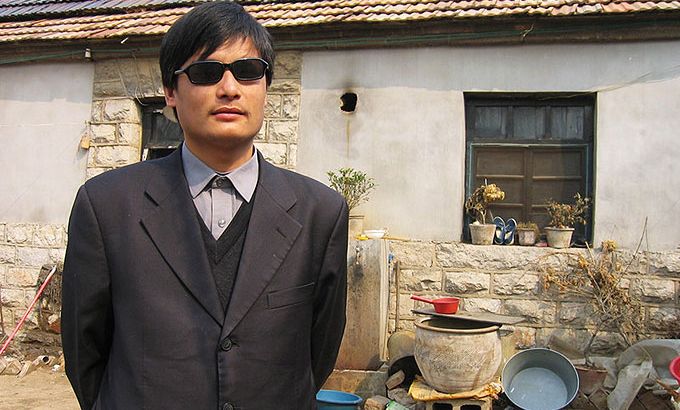Clinton presses China on rights
US Secretary of State says Beijing cannot deny “aspirations” of citizens as she opens talks marred by row over activist.

Hillary Clinton, US secretary of state, has told China that it cannot deny the “aspirations” of its citizens as she opened talks in Beijing marred by a row over a Chinese dissident.
“We believe that all governments do have to answer to citizens’ aspirations for dignity and the rule of law and that no nation can or should deny those rights,” Clinton said as she opened on Thursday the annual strategic and economic Dialogue.
Clinton, however, did not directly mention the name of activist Chen Guangcheng who on Wednesday left refuge at the US embassy in a deal that has been criticised by human rights activists.
China’s President Hu Jintao, in his speech, said China and the US must respect each other even if they disagree.
Hu said that “given our different national conditions it is impossible for both China and the United States to see eye to eye on every issue”.
Fate of dissident
The blind dissident who fled house arrest and placed himself under the wing of US diplomats is now balking at a deal worked out between the two countries to let him live in China, saying he now fears for his family’s safety unless they are all spirited abroad.
After six days holed up in the US embassy, as senior officials in Beijing and Washington tussled over his fate, Chen left the compound’s protective confines on Wednesday for a nearby hospital for treatment of a leg injury suffered in his escape.
Chen told the Associated Press news agency from his hospital room that Chinese authorities had warned he would lose his opportunity to be reunited with his family if he stayed longer in the embassy.
US officials verified that account. But they adamantly denied his contention that one American diplomat had warned him of a threat from the Chinese that his wife would be beaten to death if he did not get out of the embassy.
“I think we’d like to rest in a place outside of China,” Chen told the AP, appealing again for help from the US. “Help my family and me leave safely.”
Only hours earlier, US officials said they had extracted from the Chinese government a promise that Chen would join his family and be allowed to start a new life in a university town in China, safe from the rural authorities who had abusively held him in prison and house arrest for nearly seven years.
That announcement had been timed to clear up the matter before strategic and economic meetings start on Thursday between Clinton; Timothy Geithner, treasury secretary; and their Chinese counterparts – and to show the US standing firm in its defence of human rights in China while engaging on other issues.
Apology sought
China has demanded that the US apologise for sheltering Cheng in its embassy, the official Xinhua news agency said.
Liu Weimin, foreign ministry spokesman, said: “China is very unhappy over this. The US action is an interference in China’s internal affairs and China cannot accept it.”
“Chen Guangcheng, a native from Yinan County of eastern China’s Shandong province, entered the US embassy in Beijing in late April and left of his own volition after a six-day stay in the embassy,” he said.
Chen, who has been blind since childhood, has long been a high-profile figure and international rights groups have frequently expressed alarm at the treatment of him and his family.
Chen exposed how local authorities in Linyi, in Shandong province, forced thousands of women to have abortions or be sterilised as part of China’s one-child policy
He was placed under house arrest in 2010 after spending more than four years in jail for disrupting traffic and damaging property.
Chen’s colleagues said the escape from house arrest had taken months to plan, and was carried out with the help of a network of friends and activists.
He had jumped over the wall that the authorities had built around his house, he was taken to Beijing, where supporters say he stayed in safe houses before fleeing to the embassy.